Thomas Malthus (1766-1834) was
an English clergyman, whose writings on population growth had a
strong influence on the theory of evolution by natural selection
developed by Charles Darwin and Alfred Russel Wallace.
In An Essay on the Principle of Population (1797), Malthus observed
that most organisms produce far more offspring than can possibly
survive.
1798: "The Essay on the Principle of Population" by Thomas Robert Malthus is
one of the most important early studies of Dystopia really, really bad
futures (opposite of "Utopia"). Since population tends to multiply faster
than subsistence, many people will starve unless society adopts rigid
population controls, such as sexual abstinence and prohibition of marriage
among the poor.
This essay appears right about at the time that the growth of human
population starts to become exponential mostly due to the adoption of
public hygiene.
Instead of recommending cleanliness to the poor, we should encourage contrary habits. In our towns we should make the streets narrower, crowd more people into the houses, and court the return of the plague. In the country we should build our villages near stagnant pools, and particularly encourage settlements in all marshy and unwholesome situations. But above all, we should reprobate specific remedies for ravaging diseases: and those benevolent, but much mistaken men, who have thought they were doing a service to mankind by projecting schemes for the total extirpation of particular disorders
|
Malthus argues:
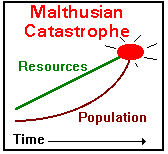 Population, when unchecked, goes on doubling itself every twenty-five years, or increases in a geometrical ratio. ... The means of subsistence, under circumstances the most favorable to human industry, could not possibly be made to increase faster than in an arithmetical ratio.
Population, when unchecked, goes on doubling itself every twenty-five years, or increases in a geometrical ratio. ... The means of subsistence, under circumstances the most favorable to human industry, could not possibly be made to increase faster than in an arithmetical ratio.
Note that this Malthusian Catastrophe is greatly distorted and is mathematical in nature, not physical.
 |
Malthus would predict that disaster awaits us at some fixed value and its just a matter of time before we reach our food supply limit. Malthus assumes a "Carrying Capacity" is fixed by nature.
|
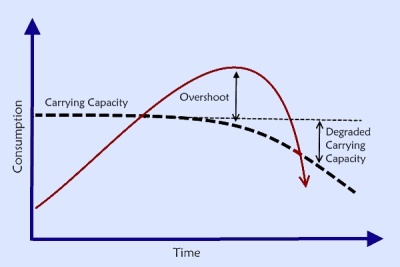 | In real ecological systems, the so called logistic growth curve pictured
above is an oversimplification as most ecosystem growth is characterized
by overshoot + subsequent degradation. Will this be the case for human growth? |
World population changes. Each Black dot represents 1 million people:
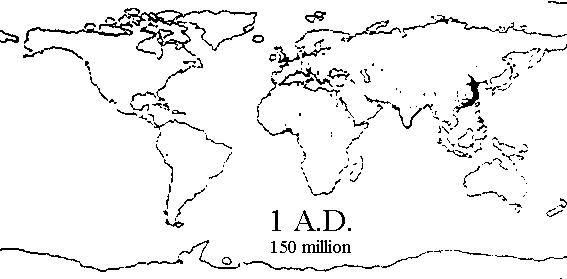
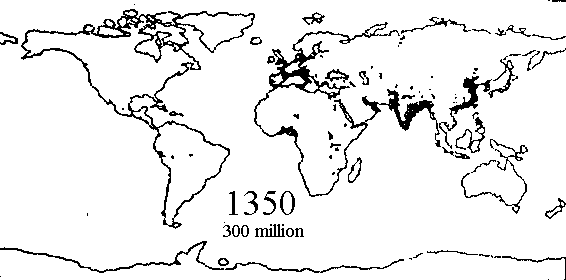
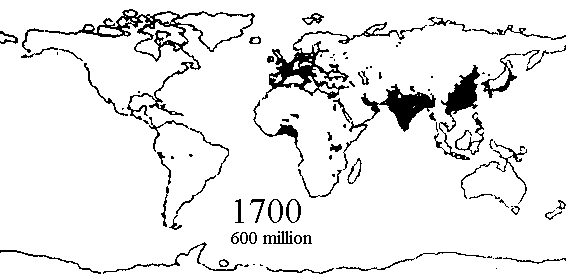
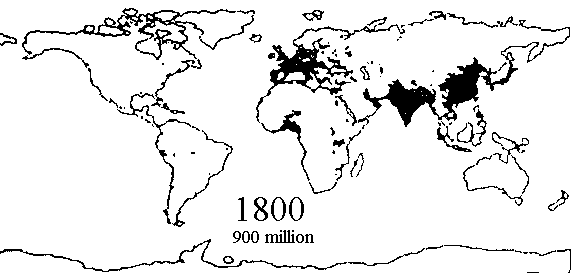
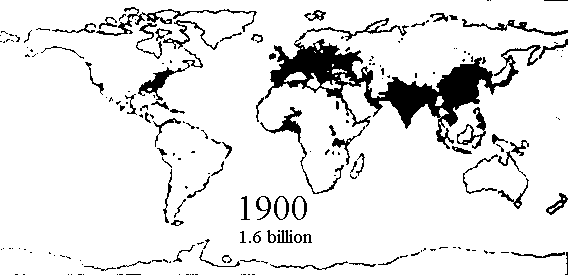
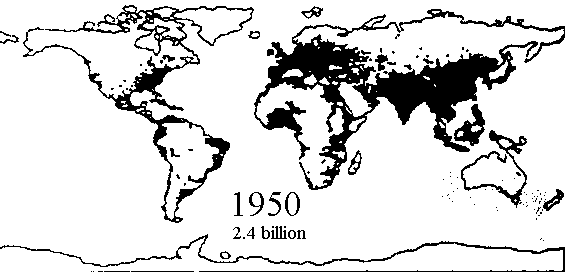
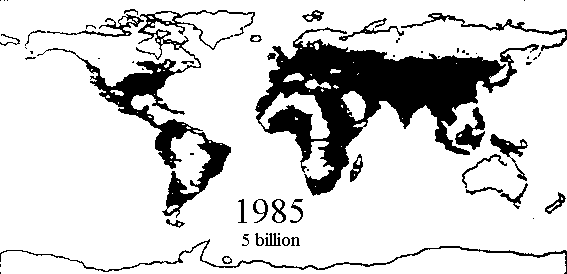
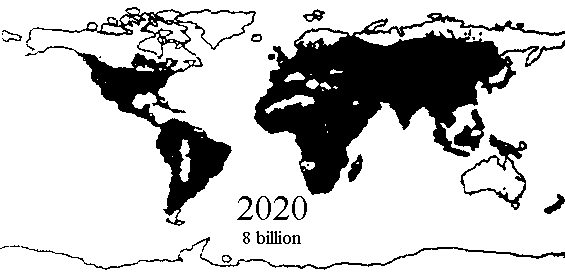
Test this
 Population, when unchecked, goes on doubling itself every twenty-five years, or increases in a geometrical ratio. ... The means of subsistence, under circumstances the most favorable to human industry, could not possibly be made to increase faster than in an arithmetical ratio.
Population, when unchecked, goes on doubling itself every twenty-five years, or increases in a geometrical ratio. ... The means of subsistence, under circumstances the most favorable to human industry, could not possibly be made to increase faster than in an arithmetical ratio.









